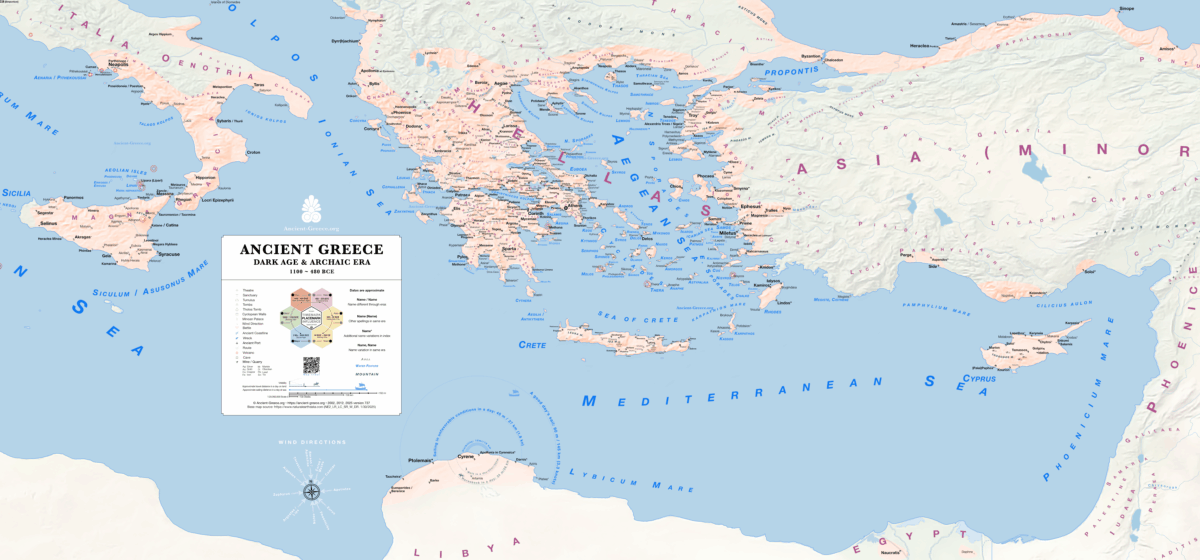
On this page:
The Early Iron Age
The extensive damage done to the Mycenaean civilization at the end of the second millennia took three hundred years to reverse.
We call this period “the Dark Ages” partly because the people of Greece fell into an existence of basic sustenance with no significant evidence of cultural development, and partly because the incomplete historical record rendered our own view of the era rather incomplete. However, since the term “Dark Ages” was coined by historians, archaeological research has shed more light on the period and the term “Early Iron Age” has been coined to describe the era.
During the Dark Ages of Greece (c. 1050-750 BCE) the old major settlements were abandoned (with the notable exception of Athens), and the population dropped dramatically in numbers.
Within these three hundred years of the early Iron Age, the people of Greece lived in small groups that moved constantly in accordance with their new pastoral lifestyle and livestock needs, while they left no written record behind leading to the conclusion that they were illiterate.
A New Beginning
In the late stages of the Dark Ages (between 950 and 750 BCE), Greeks relearned how to write once again, but this time instead of using the Linear B script used by the Mycenaeans, they adopted and improved the alphabet used by the Phoenicians.
“… innovating in a fundamental way by introducing vowels as letters. The Greek version of the alphabet eventually formed the base of the alphabet used for English today.”
(Martin, 43)
The Iliad, the oldest surviving piece of Greek literature was first recorded in writing in 780 BCE, and depicts the Trojan War, which took place at least 500 years earlier in the Mycenaean Era–a testament to the longevity and power of oral tradition that can sustain epic tales for centuries.
The deconstruction of the old Mycenaean economic and social structures with the strict class hierarchy and hereditary rule were forgotten, and eventually replaced with new socio-political institutions that culminated in the rise of Democracy in 5th c. BCE Athens.
Notable events from the end of this period include the occurrence of the first Olympics in 776, and the writing of the Homeric epics the Iliad and the Odyssey.
Photos of Dark Ages Artifacts
Chapters
This history of Ancient Greece is divided into the following chapters:
- Timeline
- Introduction
- Overview
- Geography
- Stone Age
- Bronze Age
- Dark Ages
- Archaic Era
- Classical Era
- Hellenistic Era

Related Pages




























